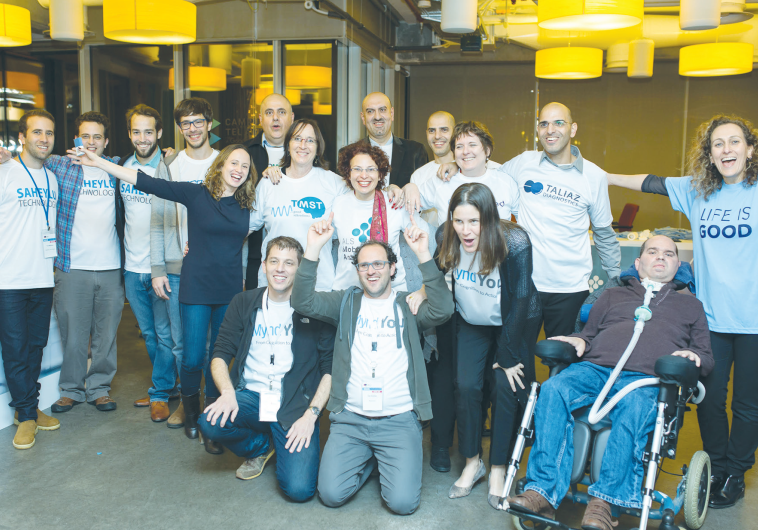Israel’s brain accelerator graduates first class
"I see great resemblance between hacking computers and hacking the brain," says leading technical officer.
 INNOVATORS WHO completed the Brainnovations program smile at the Google Campus in Tel Aviv on Wednesday.Updated:
INNOVATORS WHO completed the Brainnovations program smile at the Google Campus in Tel Aviv on Wednesday.Updated: